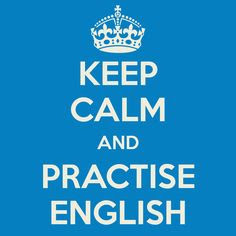Thursday, 17 December 2015
Tuesday, 15 December 2015
Thursday, 26 November 2015
Monday, 2 November 2015
Monday, 19 October 2015
Sunday, 4 October 2015
Wednesday, 30 September 2015
UNIT 1. Possessive's
Let's study the Possessive's.
Firts, watch the videos.
Then, you can practise.
Come on. It's very easy!!!
Read and do the exercises here
Task 1
Task 2
Task 3
Firts, watch the videos.
Then, you can practise.
Come on. It's very easy!!!
Read and do the exercises here
Task 1
Task 2
Task 3
"To be or not to be, that is the question"
Sujeto + Verbo ‘to be’+ Complement
I (Yo)
|
Am (soy/estoy)
|
Tired
(Cansado)
|
You (Tú)
|
Are (eres/estás)
|
|
He (Él)
She (Ella) It (Eso) |
Is (es/está)
|
|
We (Nosotros)
|
Are (somos/estamos)
|
|
You (Vosotros)
|
Are (sois/estáis)
|
|
They (Ellos o Ellas)
|
Are (son/están)
|
NEGACIÓN
|
CONTRACCIÓN
|
happy
(feliz)
|
I am not
|
I‘m not
|
|
You are not
|
You aren’t
|
|
He is not
She is not
|
He isn’t
She isn’t
|
|
It is not
|
It isn’t
|
|
We are not
|
We aren’t
|
|
You are not
|
You aren’t
|
|
They are not
|
They aren’t
|
And now... you can do a lot of exercises here
Sunday, 27 September 2015
Saturday, 13 June 2015
Monday, 8 June 2015
Tuesday, 28 April 2015
Friday, 17 April 2015
Regular verbs: different spelling
Regular verbs list: different spelling
In English we normally add -ed ending to a verb to make the past simple and the past
participle of regular verbs.
Examples of the past simple: I worked, you worked, he worked.
Examples of the past participle: I have worked, you have worked, he has worked.
1. Regular verbs that end in -e (like, love)
We only add -d (not -ed) to the verb: like - liked, love - loved.
Some of the most common verbs in this category:
analyse, apologise, admire, agree, approve, behave, change, care, bake, argue, appreciate,
bore, breathe, cause, charge, chase, close, compare, complete, like, decide, escape, force,
guide, hate, hope, invite, live, move, manage, notice, owe, phone, recognise, remove, settle,
shave, smile, snore, stare, taste, use
2. Regular verbs that end in a consonant and -y (carry, try)
We change -y into -i: carry - carried, try - tried.
More examples:
accompany, apply, bully, bury, carry, clarify, copy, cry, deny, dry, empty, fancy, fry, horrify,
hurry, identify, imply, marry, multiply, rely, reply, satisfy, supply, study, terrify, tidy, try
Note
We do not change -y into -i if the verb ends in a vowel and -y: play - played.
More examples:
annoy, delay, destroy, enjoy, employ, spray, stay
3. Regular verbs that end in a single vowel and a consonant (stop, admit, travel)
a) We double the consonant in verbs that only have one syllable and end in a single vowel and
a consonant to keep the same pronunciation: stop - stopped, hop - hopped.
More examples:
ban, beg, chat, chop, clap, clip, drop, drag, fit, flip, grab, grin, grip, hug, jog, knit, mug, nod,
pat, plan, rob, shop, skid, scrub, ship, skip, slip, snap, spot, star, stir, thin, top, trip, wrap
b) We double the consonant in verbs with more syllables if the stress falls on the last
syllable: ad'mit - admitted.
More examples:
comit, confer, deter, kidnap, permit, prefer, refer, regret, transfer, transmit
Note
If the stress is not on the last syllable, we do not double the consonant.
Example: 'enter - entered
c) In verbs ending in -l the consonant is always doubled after a single vowel.
Example: travel - travelled.
More examples:
cancel, control, label, marvel, patrol, pedal, quarrel
Tuesday, 24 March 2015
Thursday, 5 March 2015
Monday, 2 February 2015
Listening
Let's practise some skills here
www.ilokabenneth.education/2014/07/importance-of-listening-in-leadership.html
Thursday, 29 January 2015
Subscribe to:
Comments (Atom)









